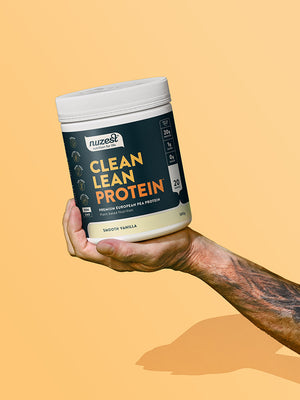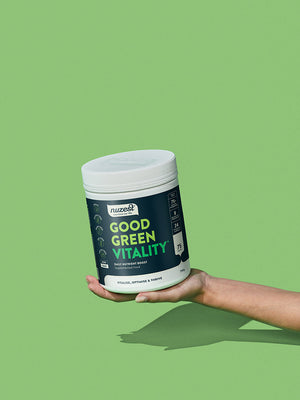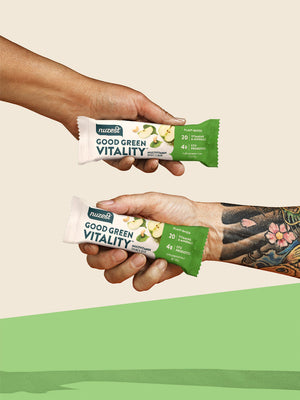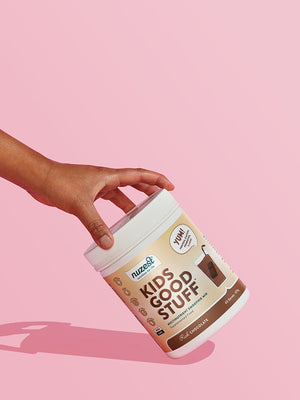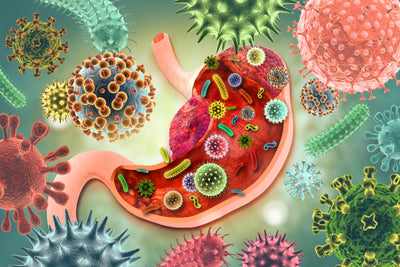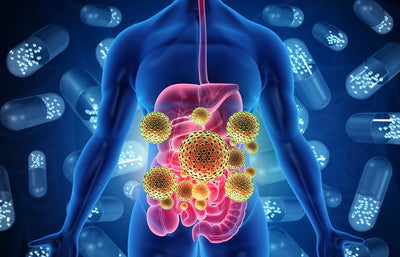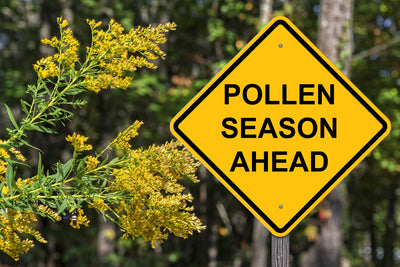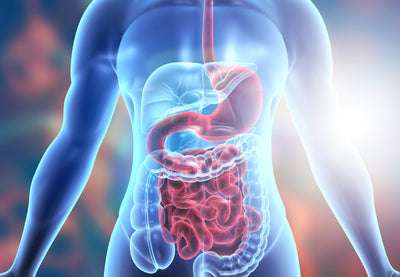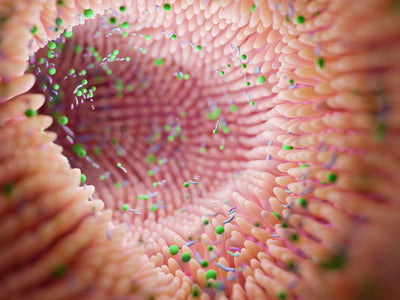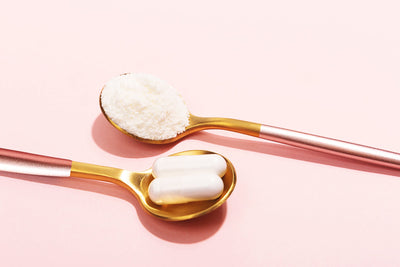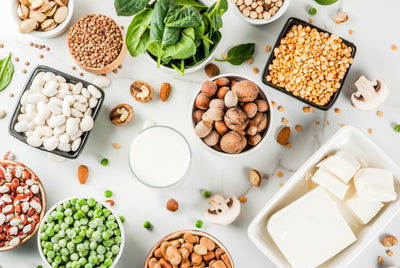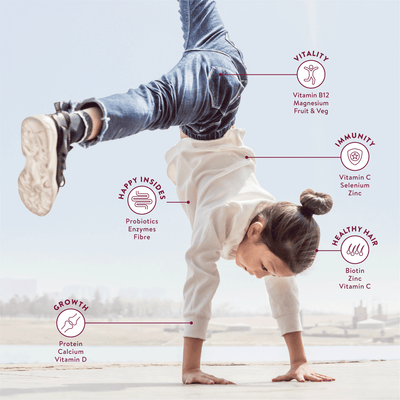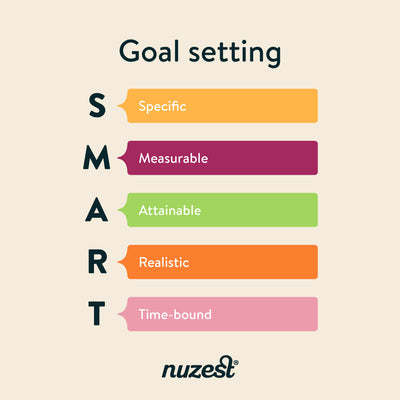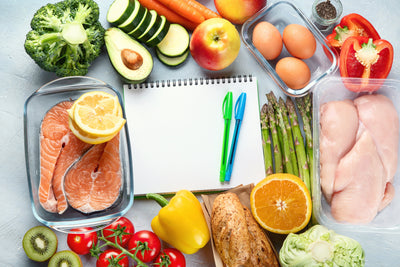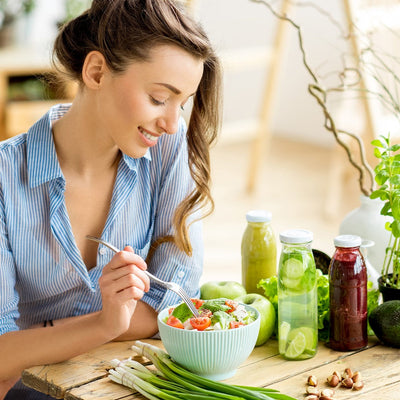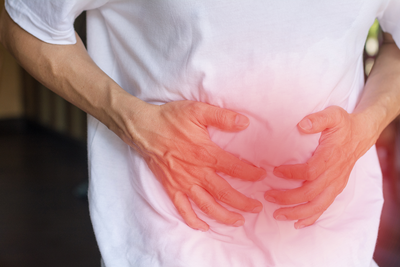
6 min read
Transitioning to a Plant-Based Diet: A How-To Guide from a Nutritionist
Posted By
Caitlin Turner
We are fortunate enough to have a team full of enthusiastic foodies at Nuzest, all of who hold varying health and nutrition related qualifications.
This month, we asked our Production Team Assistant Danika Choy to come on the blog to share her tips for transitioning to a plant-based diet.
Not only is Danika a qualified nutritionist, she is also a vegan who has been following a plant-based lifestyle for over six years.
Below, we discuss Danika’s own experience transitioning to a plant-based diet; factors that should be considered before transitioning; and the tips that she wished she had of known before making the switch to a plant-based diet.
How long should people take to transition to a plant-based diet?
Transitioning to a plant-based diet does not have to happen overnight.
It may take three weeks for one person or a year for another, so it’s important to set realistic expectations for your transition.
Making changes to your diet can be both emotionally and socially challenging.
I believe that it’s best to make a slow transition as if you make change at a comfortable pace, you will always win the race.
What was your experience transitioning to a plant-based diet?
My transition was very extreme. I went through restriction to the point of being undernourished and felt like I didn’t know what to eat on a day to day basis.
It was hard! I want people to learn from my experiences, which is why I advocate for a slow and educated transition. I have now been plant based for six years and am healthy and happy.
Why do you think there is an increasing interest in plant-based living?
I think many people are driven to the plant-based diet movement due to it being heavily supported by the evolving links of health outcomes such as psychological well being, a lower risk of chronic conditions such as Type 2 diabetes and coronary heart disease (CVD) and mortality.
Are all plant-based diets equal?
Absolutely not! I don’t think plant-based diets are necessarily appropriate or beneficial for everybody either.
This is why it is critical that people do their research on plant-based diets and seek the advice of a qualified nutrition professional such as an Accredited Practicing Dietitian or Nutritionist before embarking on this change.
While the definition of a plant-based diet is often disputed, my definition of a plant-based diet is an eating pattern that avoids most or all foods of animal origin, and instead focuses on whole grains, vegetables, fruits, nuts and seeds.
Predominately a diet in which you eat the rainbow.
What is the biggest consideration that people should make before transitioning to a plant-based diet?
Nutrient bio-availability. Not all nutrients are equal. While most essential nutrients can be found in foods of both animal and plant origin, the amount of a nutrient that is absorbed by the body is less from plant foods.
In other words, the bio-availability of nutrients is less in plant-based diets.
There are a few key nutrients that are at high risk of becoming depleted when animal foods are removed from the diet.
What are your tips for people looking to transition to a plant-based diet?
- Start slow!
- Stock your house with a variety of plant foods such as whole grains, legumes, beans, tofu, tempeh, fruits, vegetables, nuts, seeds, avocado and olive oil.
- Plan your meals ahead of time to keep them fun, colourful and exciting
- Keep some snacks on hand to ensure you are always prepared on the run
- Eat when you are hungry and stop when you a full
- Aim to drink 2-3 L of water everyday
- Exercise daily and get enough good quality sleep
- Regular bloods testing of nutrient levels
- Consider supplementing key nutrients such as protein, iron and B-vitamins. Nuzest Clean Lean Protein and Nuzest Good Green Vitality are suitable for vegan diets and have been formulated to fill any nutritional gaps in the diet.
- Continued education- researching, talking to fellow plant-based eaters, seeking help from a qualified health professional and listening to podcasts.
- Don’t take things too seriously. Aim to eat around 80% wholefoods and enjoy whatever you like for the rest!
Read more
Top plant-based food trends of 2020...
Related news
min read
An Introduction to Gut Health & Nutrition – 5 Must See Articles
Gut health significantly affects overall wellbeing, influencing brain function, immunity, and metabolism. A balanced gut microbiota, influenced by diet and environment, can potentially enhance health, aid digestion, and reduce allergies. The roles of probiotics and prebiotics in gut health are also discussed.
min read
Probiotics vs. Prebiotics
Unleash gut health with probiotics and prebiotics! Strengthen digestion, immunity, and overall well-being. Try Nuzest's Good Green Vitality for convenient support with 8 billion CFU of probiotics. Take charge now!
min read
The Link Between Gut Health & Allergies - Plus 5 Top Tips to Help
Discover the link between gut health and allergies, and how the gut microbiome influences the body's immune response to allergens. Learn how adopting a balanced diet with prebiotics and probiotics can support gut health, reducing the risk of allergic reactions. Explore solutions for allergy relief and fostering a healthier gut with Nuzest’s multi-nutrient formula, Good Green Vitality.
min read
The Great Diet Debate: Unravelling the Tapestry of Popular Eating Plans
Exploring popular diets such as the Mediterranean, Ketogenic, Plant-Based, Paleo, and Intermittent Fasting, this overview highlights their principles, benefits, and considerations. It emphasizes the importance of finding a dietary pattern that aligns with individual health goals and preferences, while suggesting the potential benefits of incorporating a multi-nutrient supplement for overall health.
min read
The Gut Connection: How to Improve Your Digestion and Gut Health in 6 Steps
Discover the significance of gut health and its impact on digestion and overall well-being in this insightful article. Learn six practical steps, including maintaining a balanced diet, staying hydrated, managing stress, and using antibiotics wisely, to promote a healthy gut and enhance vitality.
min read
Does Gut Health Affect Your Immune System? | Do These 6 Things
The gut microbiome, which consists of trillions of bacteria in our digestive tract, plays a crucial role in supporting our immune system and overall health. Consuming probiotics and prebiotics, staying hydrated, managing stress, limiting processed foods, and engaging in outdoor activity and exercise are effective strategies to promote a healthy gut and enhance immunity.
min read
What is Collagen? Types, Sources and Benefits of Supplementation
Collagen is essential for joints, bones, muscles, ligaments, tendons, cartilage, skin, hair and nails.2 It is one of the primary structural proteins of connective tissue and plays a crucial role in the body by cushioning, strengthening, hydrating, binding, and connecting tissues together.3 Connective tissues are able to provide physical and mechanical support through the collagen, elastic and reticular fibres
min read
Kids Good Stuff for Skin Health
How can you ensure your kids have healthy skin? A part from the obvious, what nutrients can we provide our kids to ensure their skin stays in tip top shape?
min read
Maximising Mood In Your Kids
Almost 1 in 7 children and adults aged 4-17 had been diagnosed with a mental health disorder. Amy Butler discusses good nutrition and lifestyle modifications, that can help to reduce the risk.
min read
Long-Lasting Energy For Kids
Children and adolescents are going through massive periods of growth and development. To keep up with the demands of school, extracurricular activities, sports and friendships, kids often need a bit of an energy boost. In our latest blog we break down some specific nutrients for energy, to help support growing kids, and the best places to source them from.
min read
Setting Health Goals & Staying Motivated in 2021
Use this tried and tested goal strategy to set smaller, specific goals to avoid the overwhelm of unrealistic and vague health objectives.







